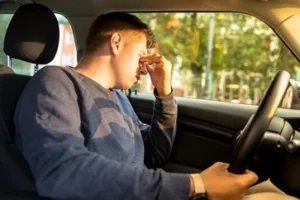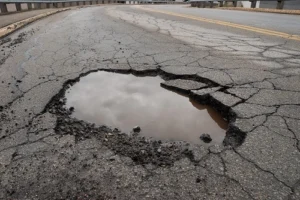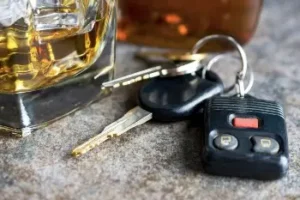Automated external defibrillators (AEDs) are essential tools that can save lives during sudden cardiac arrests. When these devices are missing or malfunctioning, the consequences can be severe for the victim.
Cardiac arrest can strike anyone, from student-athletes to healthy adults. Louisiana laws require AEDs in public places to reduce fatalities and enhance safety. If an AED is missing or malfunctions, causing injury or death, seek help from a New Orleans AED liability lawyer.
Scott Vicknair Injury Lawyers, with over 30 years of combined experience, can help. Contact a New Orleans personal injury lawyer from our team to discuss your rights and legal options. We operate on a contingency fee basis—so you don’t pay unless we win.
AEDs: The Basics
An AED (Automated External Defibrillator) is a portable device designed to deliver an electrical shock to the heart in cases of cardiac arrest. The device consists of a computer that uses electrodes attached to the skin to monitor the heart’s rhythm.
When defibrillation is necessary, the AED instructs the user to press a button, delivering the shock through the chest. The machine provides clear guidance throughout the process, making it user-friendly and minimizing the need for independent judgment.
If an AED fails or is missing when needed, seeking legal help from a New Orleans premises liability lawyer is vital to protect your rights and seek justice.

Injured on Someone Else’s Property?
Know Your RightsOur expert premises liability lawyers will help you hold negligent property owners accountable.
Get a Free Case Evaluation
504-500-1111What Are the Mandates for AEDs in Louisiana?
In Louisiana, certain public places are mandated by law to have AEDs available. For instance, schools must have an AED to participate in various sporting events, including most public schools and universities.
Places Required to Have AEDs
Under specific conditions, other locations that may need to have an AED on-site include:
- Airports
- Golf courses
- Sports stadiums (including high school sporting events)
- NCAA and high school athletic programs
- Gyms
- Dentist’s offices
- Theme parks
- Medical offices
- Nursing homes
Our team is here to help you understand these requirements and assist with any legal questions or concerns you might have. An AED liability attorney in New Orleans has the experience and knowledge to deal with these cases.
AEDs and the Good Samaritan Law
The Good Samaritan Law in Louisiana encourages the use of AEDs during cardiac emergencies by providing legal protection to those who assist in good faith. This law offers immunity from civil liability to individuals who use AEDs to help cardiac arrest victims.
By updating existing laws, the Good Samaritan Law protects both the public and AED owners. This legislation promotes the use of AEDs in public spaces, ensuring that fear of liability does not prevent people from offering help in emergency situations.
Harmed by a Dangerous Defective Product?
We’re Here for YouOur experienced product liability attorneys will fight to secure the compensation you deserve for your injuries.
Schedule a Free Consultation
504-500-1111Impact of Negligence on AED Functionality
Negligence refers to the failure to exercise reasonable care when caution is needed to protect others. Businesses with an AED must keep the device in working order and make sure employees know its location and how to use it.
- Negligence in maintenance: Failing to maintain and test the AED is negligent. If the law requires an AED and it’s absent or non-functional, the property owner is negligent by default.
- Manufacturer liability: AED manufacturers must make sure their products work properly. They can be liable for injuries from defective AEDs if the defect is due to design, manufacturing, or labeling flaws.
Understanding these aspects of negligence is essential for ensuring AEDs are reliable and effective in emergencies, potentially saving lives. Additional information on proving liability is detailed below.
Proving Negligence for Good Samaritans
While the law protects those who help in emergencies, this isn’t absolute. Reckless or intentional harm can lead to negligence lawsuits. Talking to an experienced attorney is important to understand these situations.
Laypersons must act as a reasonable, untrained person would in similar situations. They should follow AED instructions and provide any help they can. If a layperson ignores instructions, prevents more skilled help, or acts unreasonably, they may be liable for negligence.
Medical professionals like doctors, nurses, and EMTs have limited immunity. They aren’t liable for ineffective care or additional injuries while helping but can be liable for intentional harm or reckless behavior causing injury or death.
Slip and Fall Accident?
Get the Legal Support You NeedOur dedicated slip and fall attorneys will help you navigate the legal process and claim the compensation you deserve.
Speak to a Lawyer Today
504-500-1111A New Orleans AED Liability Lawyer Can Help Prove Manufacturer, Distributor, and Maintenance Liability
AEDs are life-saving devices, but their use raises significant legal concerns for not only the user but also the manufacturers, distributors, and those who maintain them, especially in emergency situations.
Manufacturer Liability
Manufacturers can be held liable for AED defects or malfunctions. They must design and produce AEDs that are safe for both laypersons and healthcare professionals.
If a device fails due to design flaws, manufacturing issues, or inadequate warnings, the manufacturer may be responsible for injuries or deaths. This includes problems with electrical components, battery performance, software issues, or faulty electrode pads.
Distributor Liability
Distributors also bear some liability. They must make sure AEDs are in proper working order and undamaged during transport. If a distributor fails to inspect, test, or maintain the devices properly, they could be liable if a malfunction leads to harm or death.
Maintenance Liability
Those responsible for AED maintenance and training have a duty to keep the devices ready for use. Negligent maintenance, improper storage, or lack of inspections can lead to device failure and subsequent liability for any harm caused.
Speak With a Local Attorney About AED Wrongdoing
The presence of an AED can be life-saving during a heart attack, but it can also cause harm if it’s not available, malfunctioning, or used negligently. When injuries occur under these circumstances, seeking legal help is essential.
Scott Vicknair Injury Lawyers can answer your questions about proving negligence in AED liability cases. Their experienced team, including our New Orleans AED liability lawyers, is ready to assist you.
We work on a contingency fee basis, meaning you won’t pay unless you win your case. This allows you to seek justice without upfront costs. Reach out today to explore your options and understand your rights with confidence.



